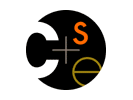
|

CSE 473: Artificial Intelligence |
|
 CSE Home CSE Home |
 About Us About Us |
 Search Search |
 Contact Info Contact Info |
|
Welcome to CSE 473 for Spring 2005!
News
ObjectivesThis class will provide an introduction to Artificial Intelligence, explaining the challenges inherent in building an "intelligent system" and describing the main techniques and tools. We will focus on search, constraint satisfaction, knowledge representation, planning, machine learning, robotics, and reasoning about uncertainty.
Time ScheduleMWF 9:30-10:20 EE1 037
InstructorDieter Fox (fox at cs.washington.edu)Allen Center 586 Office Hours: Mondays 3-4pm in CSE-586.
Teaching AssistantsJulie Letchner (letchner at cs.washington.edu)Office Hours: Tuesdays 1:30-3pm in CSE-216; Thursdays 12:30-2pm in CSE-220
Matt Hoffman (mhoffman at cs.washington.edu)
CSE473 Mailing List:Please visit https://mailman.cs.washington.edu/mailman/listinfo/cse473 to subscribe to the class mailing list.
TextbookThe (required) textbook is Russell & Norvig "Artificial Intelligence: A Modern Approach," (Prentice Hall) 2nd edition, 2003. (Note: this book is much improved over the previous edition). We may also assign readings off the WWW.GradingYour final grade will be assigned based on the following (tentative weighting):
Late PolicyUnless otherwise indicated, assignments and projects are due by the start of lecture on their due date. If you hand in an assignment more than one hour late, we will take off 20% for each day (or portion thereof) that it is late. So, if an assignment is due on April 16, it must be in the TA or lecturer's hands by 9:30am (start of class) on that day, with a one hour grace period after that. In addition, we will waive one days worth of late penalties over the courseof the quarter. At quarters end, we will not give Incompletes as grades.Cheating Vs. Collaborating GuidelinesCollaboration is a very good thing. On the other hand, cheating is considered a very serious offense. Please don't do it! Concern about cheating creates an unpleasant environment for everyone. If you cheat, you risk losing your position as a student in the department and the college. The department's policy on cheating is to report any cases to the college cheating committee. What follows afterwards is not fun. So how do you draw the line between collaboration and cheating? Here's a reasonable set of ground rules. Failure to understand and follow these rules will constitute cheating, and will be dealt with as per University guidelines.
|
|
Computer Science & Engineering University of Washington Box 352350 Seattle, WA 98195-2350 (206) 543-1695 voice, (206) 543-2969 FAX | |